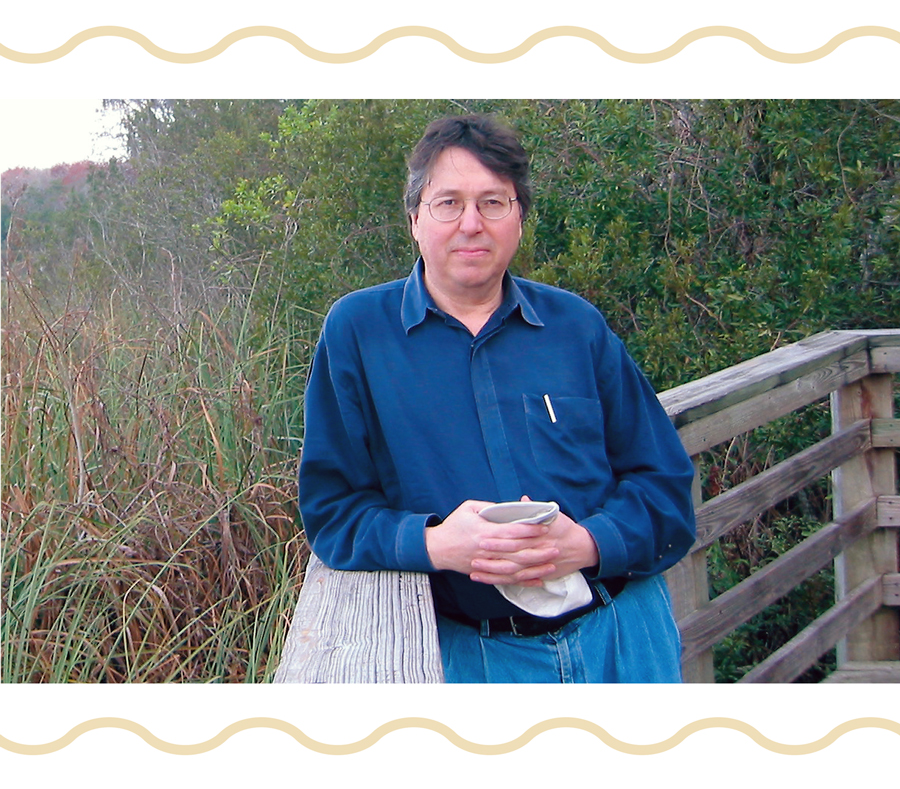Lewis Hyde and the Common Good
The son of a pioneering optics researcher, Lewis Hyde has confidently pursued his own visions of art and the imagination in relation to cultural history and economics. His books' subjects include English translations of Spanish poems by Vicente Aleixandre, studies of John Berryman, Allen Ginsberg, and John Cage, and a collection of his own verse, as well as a trio of influential, approachable cultural studies: The Gift: Imagination and the Erotic Life of Property, Trickster Makes This World: Mischief, Myth, and Art, and the 2010 title, Common as Air: Revolution, Art and Ownership. Hyde's interest in art as an engine of culture, and his arguments for the preservation of our free speech and public arts, inspired Conduit to invite him over. He couldn't come. So William Stobb used some pretty fancy fiber-optics to connect with Hyde at his office.

conduit: Do you feel hope for civic republicanism? Or do you feel like it's a lost virtue?
lewis hyde: [Laughs] Well, because I'm an American, I have hope. And I think civic republicanism is still alive among us. You know, there are many people among the wealthy who understand the anti-tax movement is stupid--that you do not have an active public sphere unless people are willing to pay their taxes. And so you get books like Wealth and Commonwealth by Bill Gates Sr. and Chuck Collins (the subtitle of which is Why America Should Tax Accumulated Fortunes) or Warren Buffet. There are many people who have the old idea that the point of property is not simply to make you richer. It's to give you a foundation from which you can then do things for your community. I think of Tim Bernard Leeds, who was one of the originators of the protocols that have become the Internet. He was working for a group in Europe called CERN, and they came up with ways for computers to talk to each other and so forth. And instead of thinking, "Hot dog! We got some idea here. Let's patent it and collect fees," they said, "no, the only way this can work is if we give it away." So they put these things into the public domain, and it's because they're in the public domain that the internet actually works as well as it does.
conduit: Imagine if a royalty changed hands every time an internet protocol was employed. It's almost as unimaginable as the ownership of the human genome, which you discuss in Common as Air.
hyde: That's a really good example of civic republicanism, because, while there was indeed one group trying to privatize usage rights to genomic science, the main group of scientists understood that they could only proceed if the knowledge they were acquiring was made public right away. So they came up with a whole system of norms called "The Bermuda Protocols," where if any large genome research center in the world reaches a certain level of understanding they have to release their data within twenty-four hours, and everybody else in the world can have access to it. So those are people again who are working in a civic republican mode.
conduit: What's the next project for you?
hyde: I'm interested in cultural and personal memory and forgetting–the positive virtues of being forgetful. [Laughs] So it's an inversion of the usual censure that you really gotta remember everything. There's a wonderful line in the Buddhist tradition: "you study the self to forget the self." If you forget your self, then the world becomes interesting. So, I like the two stages there. It's not about suppression–not about failing to remember because you're anxious or upset. It's really a product of being attentive to what's going on, and then you can become self-forgetful. There's a whole line of artists who have a sense that self-forgetfulness is useful. Marcel Duchamp said about his friend, the painter Picabia, that he had the gift of forgetting what he'd done in the past, and therefore always made original work. The book will be called A Primer for Forgetting. Watch your bookstores, in ten years it should be out [laughs].
conduit: In closing: insurance executive and poetry colossus Wallace Stevens wrote "Money is a kind of poetry." What do you think he meant by that?
hyde: [Laughs] Stevens in his own practice really made quite a separation between his day job as an insurance person and his evening job as a poet. In fact, in his briefcase, he had separate places for insurance papers and the poetry.
conduit: So money may have been a kind of poetry, but it wasn't the same kind of poetry.
hyde: [Laughing] Right. Karl Marx says, "logic is the money of the mind." And in The Gift I say, "imagination is the gift exchange of the mind." So, there are many economic metaphors that creep into the world of creativity. I guess we should call Wallace back from the grave to explain this line to us.
conduit: I'll see if I can reach him for comment.
hyde: Let me know how that goes.
{back}

